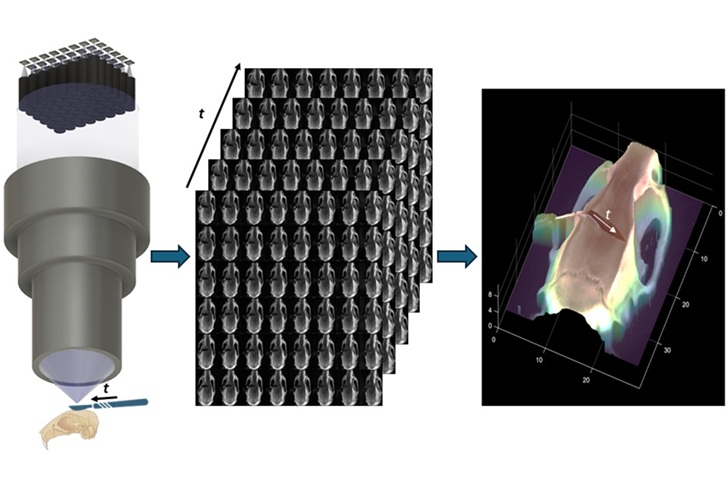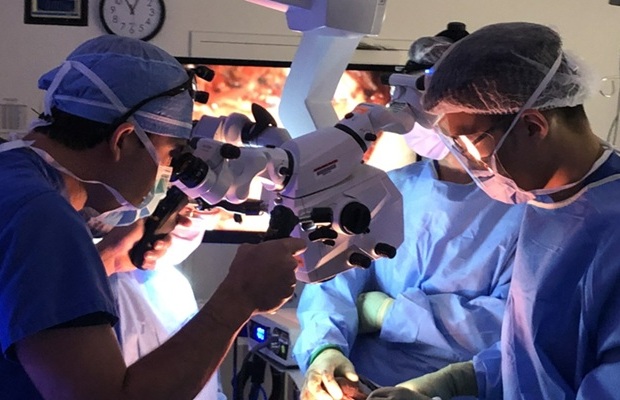AI Camera Technology Helps Doctors Quickly Assess Severity of Infections
|
By HospiMedica International staff writers Posted on 11 Jun 2024 |
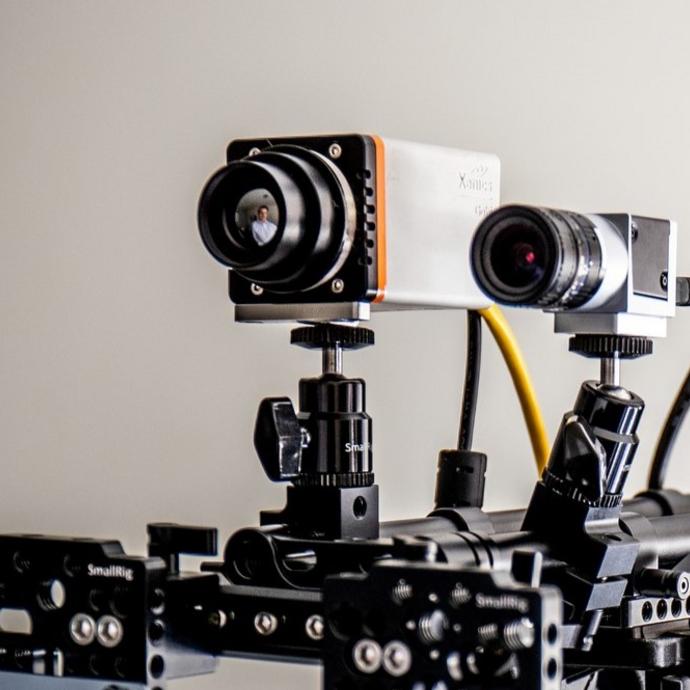
A significant number of patients who visit healthcare centers are seeking help for symptoms like sore throats, coughs, and fever. While many of these infections are harmless and self-resolving, they can sometimes be the initial signs of more severe and potentially life-threatening illnesses such as pneumonia, COVID-19, and Lemierre’s syndrome. It is crucial to quickly evaluate the severity of these symptoms to provide necessary treatment without the inappropriate use of antibiotics. The overuse of antibiotics leads to the development of resistant bacteria strains, diminishing the effectiveness of these drugs. Currently, the severity of an infection is determined by checking vital signs, which are key indicators of a person's physical health, using a variety of instruments. Now, a new technology that can measure a patient’s pulse, breathing, and blood pressure simply by scanning their face could provide a tool for quickly assessing the severity of acute infection and other medical conditions.
The newly developed method by researchers at the University of Gothenburg (Gothenburg, Sweden) combines camera technology, software, and artificial intelligence (AI) to potentially replicate the results obtained from traditional instruments by simply scanning a patient's face for 30 seconds. In a recent study involving over 200 patients suspected of having COVID-19, this camera-based method was clinically tested and shown to enhance both the assessment of severity and the accuracy of diagnoses. The technology was able to provide data on the patient’s heart rate, oxygen saturation, respiratory rate, and blood pressure. Although the findings are promising, they require further validation, particularly concerning the precision of the measurements.
“The new AI method means that measurements are faster, more convenient for the patient, easier for the healthcare provider, and involve less risk of infections being spread via measuring equipment,” said Stefan Malmberg from the University of Gothenburg. “This type of research is crucial for the development of new healthcare technologies.”
Related Links:
University of Gothenburg
Latest Critical Care News
- Discovery of Heart’s Hidden Geometry to Revolutionize ECG Interpretation
- New Approach Improves Diagnostic Accuracy for Esophageal Motility Disorders
- Wristband Sensor Provides All-In-One Monitoring for Diabetes and Cardiovascular Care
- Handheld Device Enables Imaging and Treatment of Oral Cancer in Low-Resource Settings
- New Fully Automated AI Algorithm More Effective at Predicting Heart Attack Risk
- First-In-Kind Self-Assembling Collagen Scaffold Advances Wound Care
- AI-Enhanced Echocardiography Improves Early Detection of Amyloid Buildup in Heart
- Consumer Wearables Could Predict Pediatric Surgery Complications
- Wireless Implant Delivers Chemotherapy Deep into Tumors Without Side Effects
- Skin-Like Sensor Monitors Vital Signs and Tracks Healing After Surgery
- Implantable Device Could Save Diabetes Patients from Dangerously Low Blood Sugar
- New Prostate Screening Device Could Replace Traditional Examination Method
- Adaptive Spine Board to Revolutionize ER Transport
- Mapping Communication Between Internal Organs to Enable Earlier Illness Diagnosis
- Intelligent Wound Dressing Reduces Inflammation and Promotes Healing
- Cuff-Free Blood Pressure Monitoring Device to Improve Early Detection and Management of Hypertension
Channels
Surgical Techniques
view channel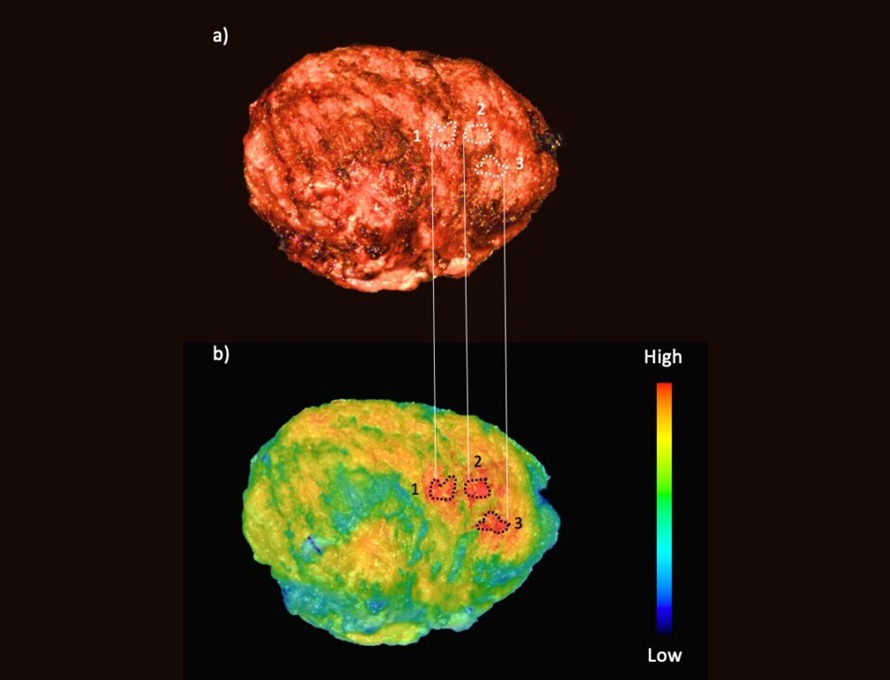
Fluorescent Imaging Agent ‘Lights Up’ Nerves for Better Visualization During Surgery
Surgical nerve injury is a significant concern in head and neck surgeries, where nerves are at risk of being inadvertently damaged during procedures. Such injuries can lead to complications that may impact... Read more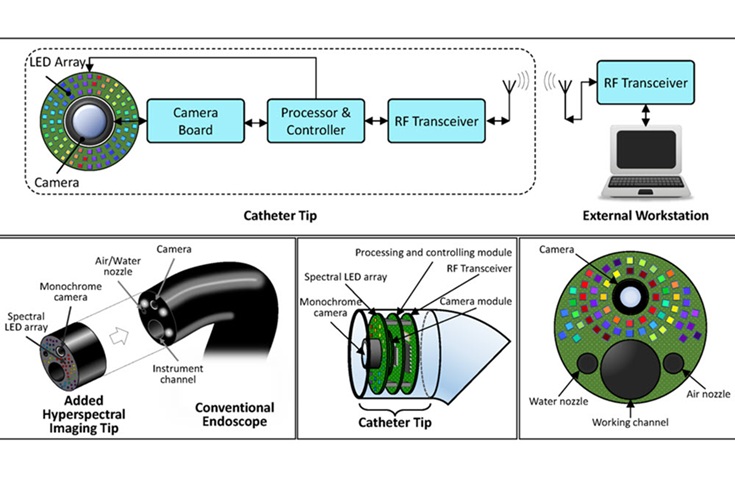
LED-Based Imaging System Could Transform Cancer Detection in Endoscopy
Gastrointestinal cancers remain one of the most common and challenging forms of cancer to diagnose accurately. Despite the widespread use of endoscopy for screening and diagnosis, the procedure still misses... Read morePatient Care
view channel
Revolutionary Automatic IV-Line Flushing Device to Enhance Infusion Care
More than 80% of in-hospital patients receive intravenous (IV) therapy. Every dose of IV medicine delivered in a small volume (<250 mL) infusion bag should be followed by subsequent flushing to ensure... Read more
VR Training Tool Combats Contamination of Portable Medical Equipment
Healthcare-associated infections (HAIs) impact one in every 31 patients, cause nearly 100,000 deaths each year, and cost USD 28.4 billion in direct medical expenses. Notably, up to 75% of these infections... Read more
Portable Biosensor Platform to Reduce Hospital-Acquired Infections
Approximately 4 million patients in the European Union acquire healthcare-associated infections (HAIs) or nosocomial infections each year, with around 37,000 deaths directly resulting from these infections,... Read moreFirst-Of-Its-Kind Portable Germicidal Light Technology Disinfects High-Touch Clinical Surfaces in Seconds
Reducing healthcare-acquired infections (HAIs) remains a pressing issue within global healthcare systems. In the United States alone, 1.7 million patients contract HAIs annually, leading to approximately... Read moreHealth IT
view channel
Printable Molecule-Selective Nanoparticles Enable Mass Production of Wearable Biosensors
The future of medicine is likely to focus on the personalization of healthcare—understanding exactly what an individual requires and delivering the appropriate combination of nutrients, metabolites, and... Read more
Smartwatches Could Detect Congestive Heart Failure
Diagnosing congestive heart failure (CHF) typically requires expensive and time-consuming imaging techniques like echocardiography, also known as cardiac ultrasound. Previously, detecting CHF by analyzing... Read moreBusiness
view channel
Bayer and Broad Institute Extend Research Collaboration to Develop New Cardiovascular Therapies
A research collaboration will focus on the joint discovery of novel therapeutic approaches based on findings in human genomics research related to cardiovascular diseases. Bayer (Berlin, Germany) and... Read more












